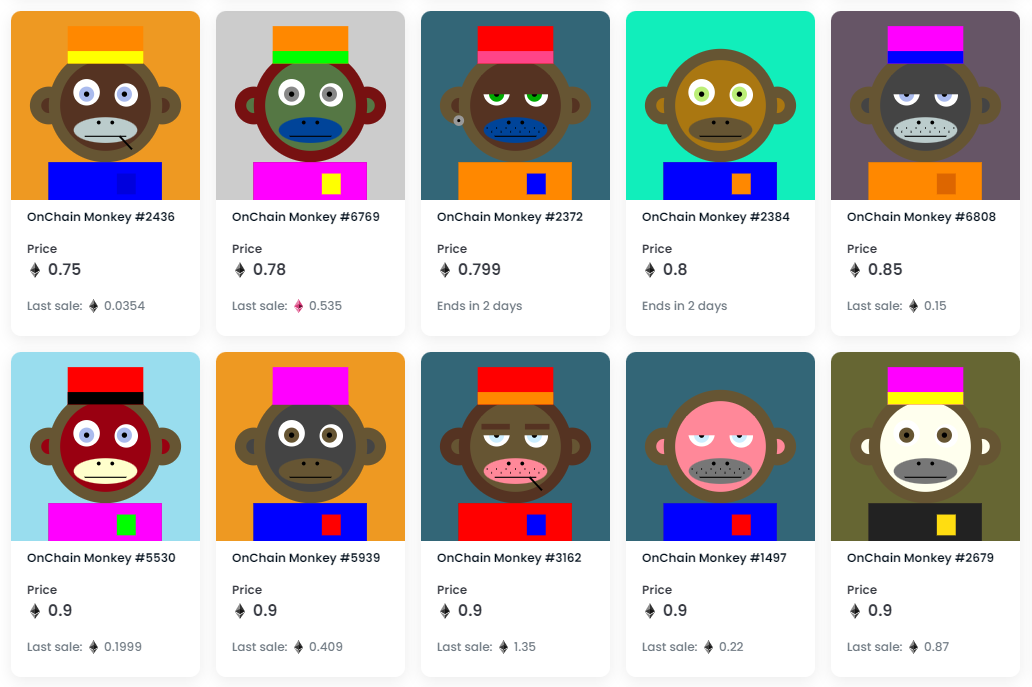NFTs, like all digital media, in their most basic form, consist of data made up of 1s and 0s that are stored on a computer or hardware. Everything from the smart contract to the URL and token ID of the NFT has to be stored somewhere. However, not all storage techniques are created equal. So before you decide to buy or create your first NFT, let’s understand how and where NFTs are stored.
On-Chain vs. Off-Chain Storage

OnChain Monkey
On-chain simply means putting the entire data of NFT on the blockchain. It is usually more secure because the users can easily verify all the information about the project. A good example of an on-chain NFT is OnChain Monkey, a PFP NFT collection. Another example of a chain project is Autoglyphs, a generative art collection.
However, very few projects opt for this method simply because JPEG images are heavy files and there would be hundreds of thousands of NFTs that need to be stored. So most projects, like Bored Ape Yacht Club and CryptoPunks, prefer to store the actual images off-chain.
Centralized vs. Decentralized NFT Storage-What’s The Difference?

When we talk about off-chain storage, smart contracts store all the information about the NFTs, like their location and unique description. They are stored in the form of a hash, an algorithm used to encode data. In other words, the hash is responsible for pointing to a centralized or decentralized hosting provider.
Centralized hosting providers run huge servers that can store a lot of data. But they come with a risk that if they shut down, users could permanently lose their NFTs.
Many projects, therefore, use decentralized NFT storage solutions because the data is spread across multiple locations or nodes, which not only increases security but also saves the NFT from the risk of hacking.
The most common decentralized solution to host NFTs is the InterPlanetary File System or IPFS. IPFS is a peer-to-peer network that allows files to be stored across multiple nodes, protecting them from centralized server problems. OpenSea, the biggest NFT marketplace, allows creators to store their files on IPFS.
Another way to store your NFT is with a hardware wallet. These are the most secure because they let you store your private key that only you know.
So, wherever you decide to store your NFTs, make sure to keep them secure.


